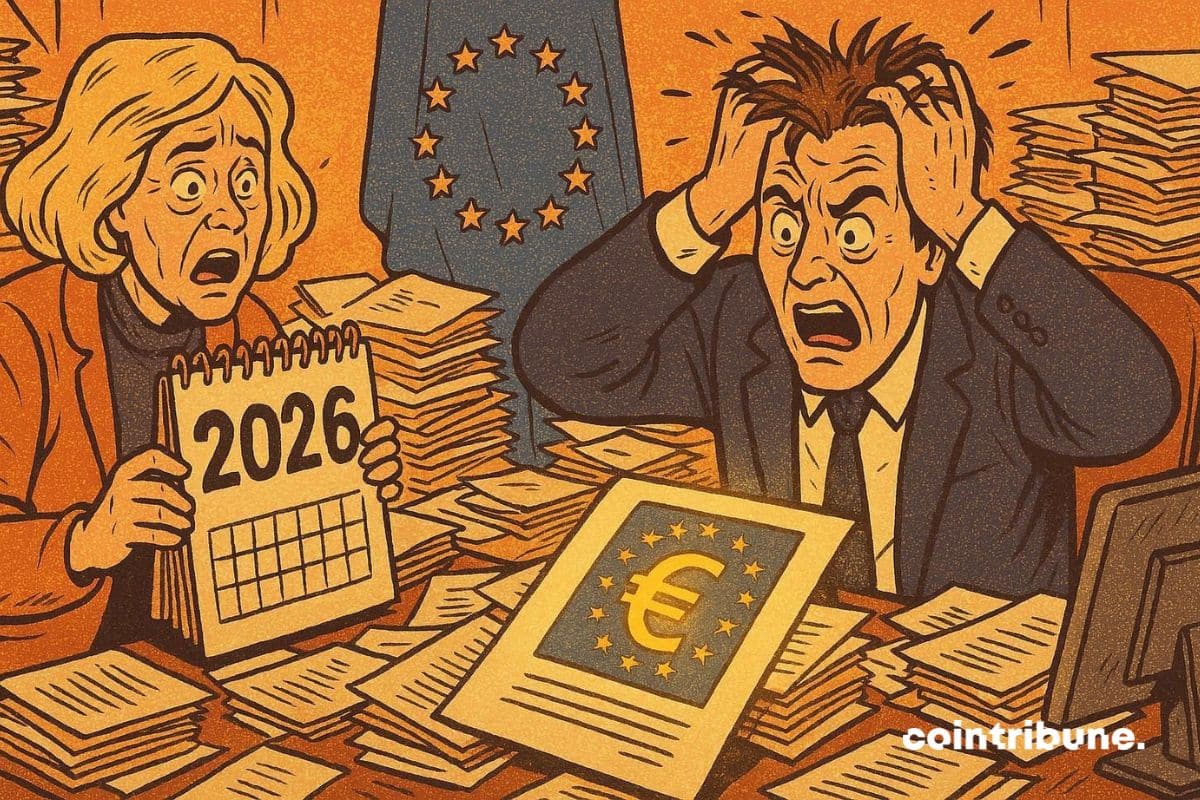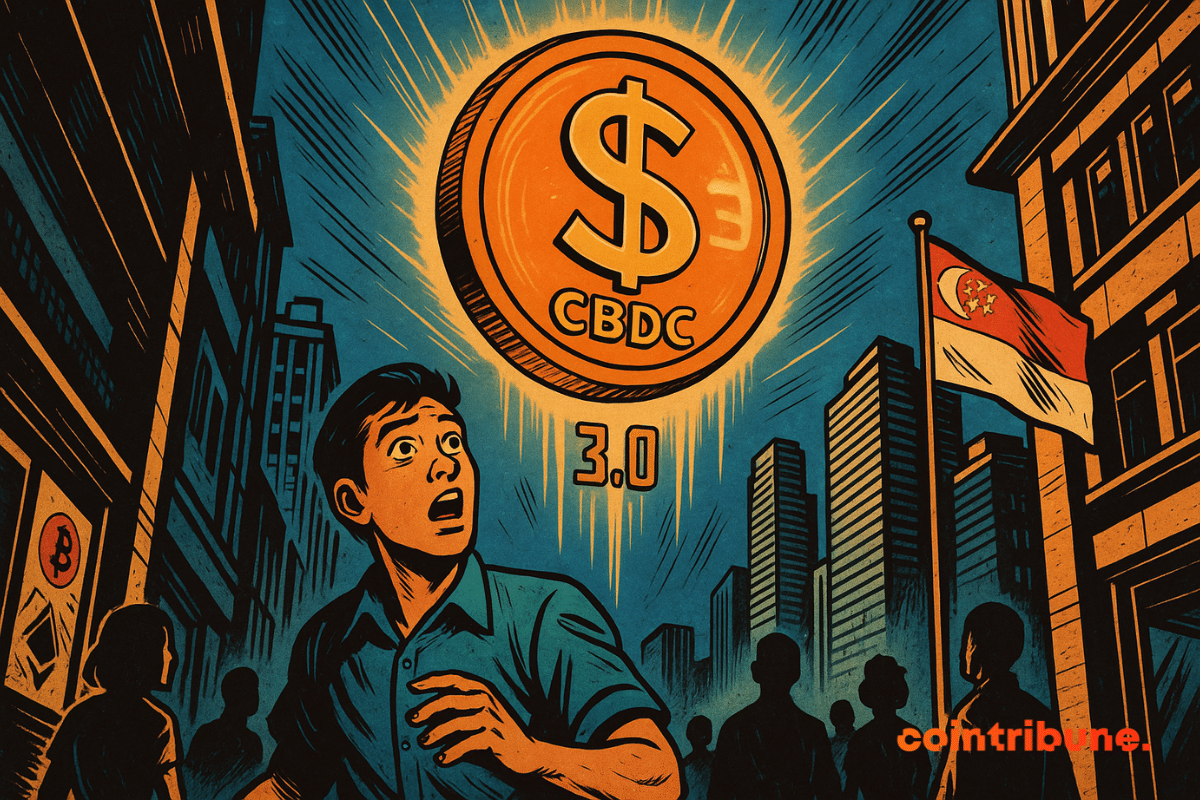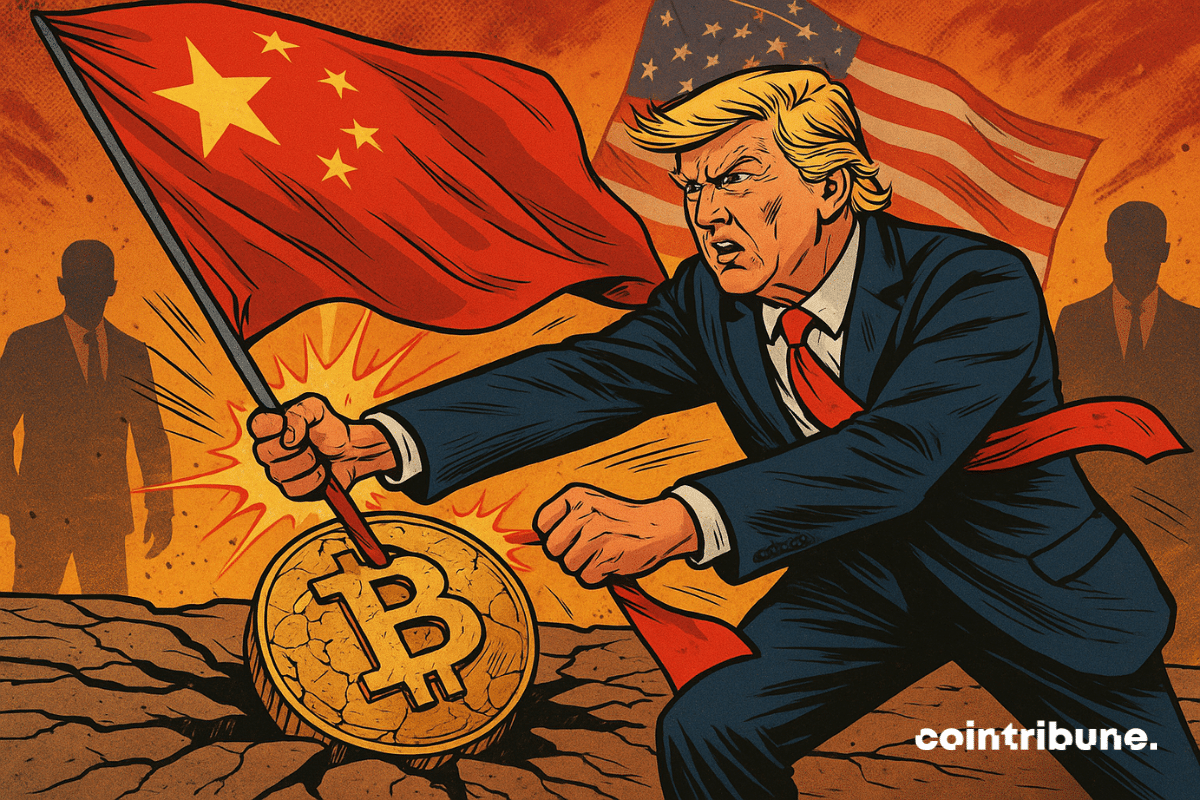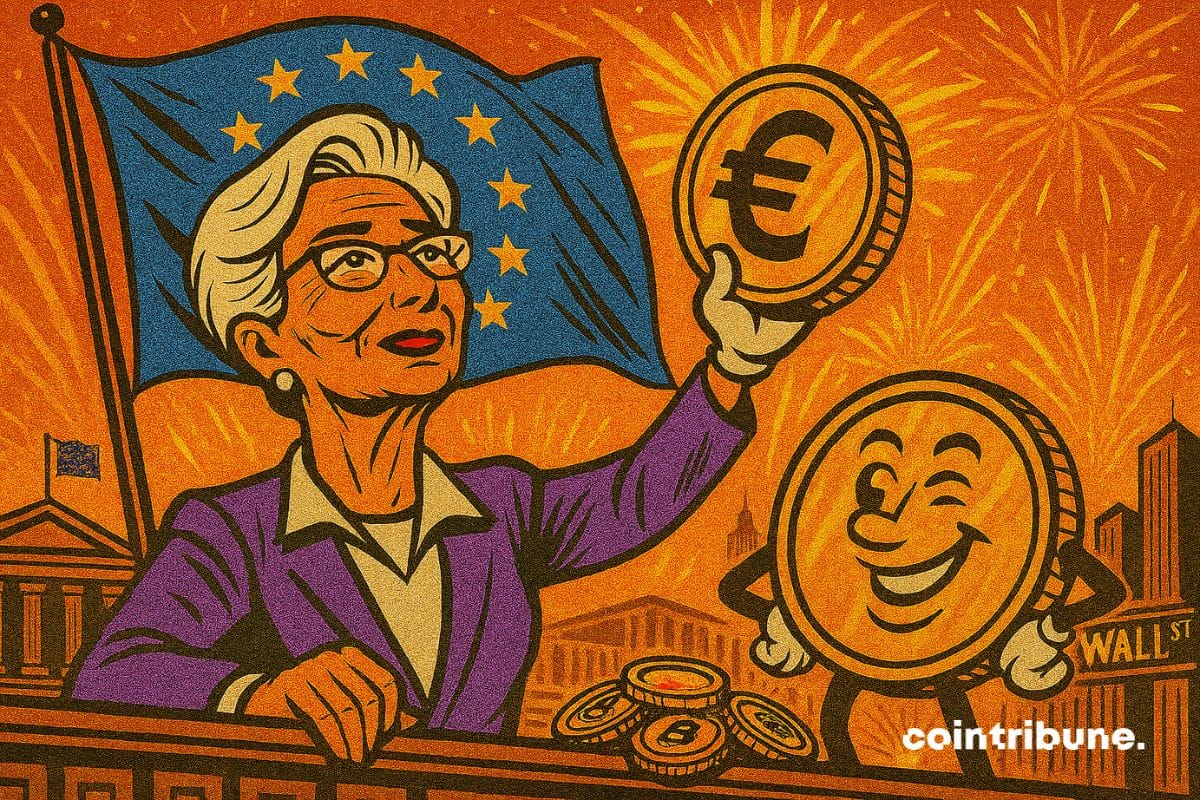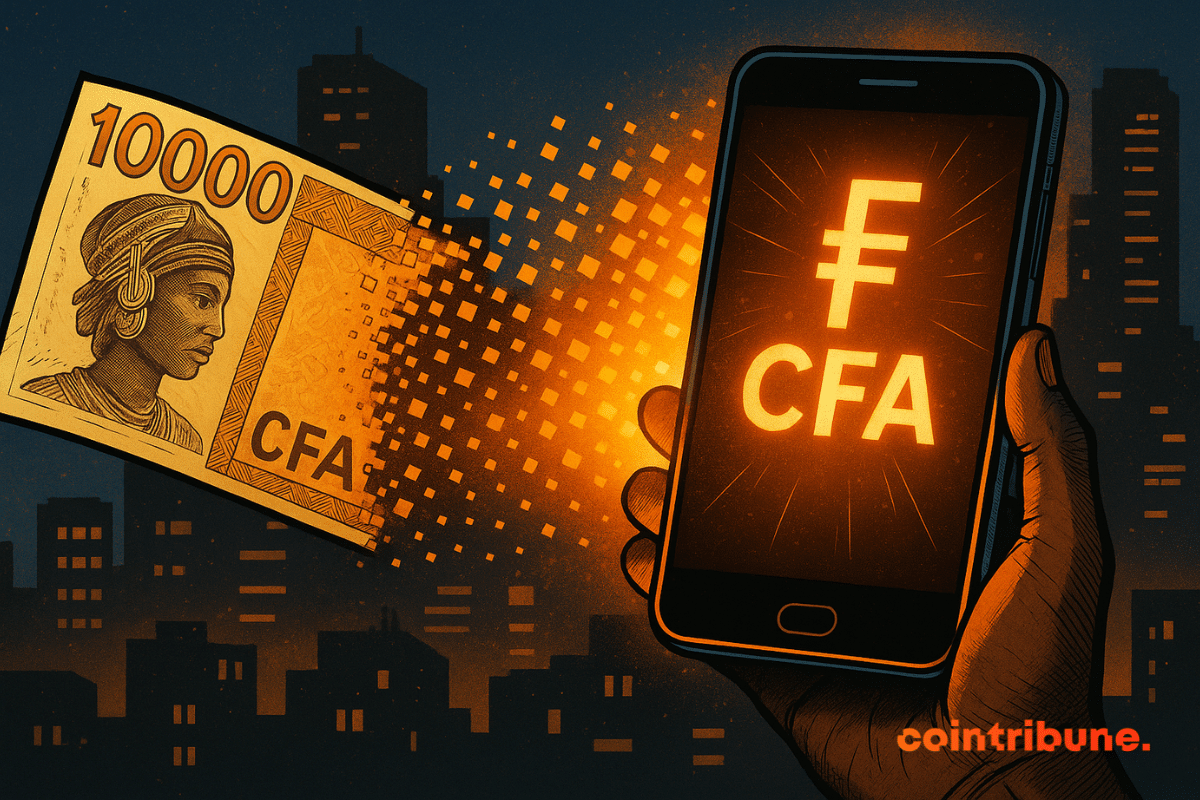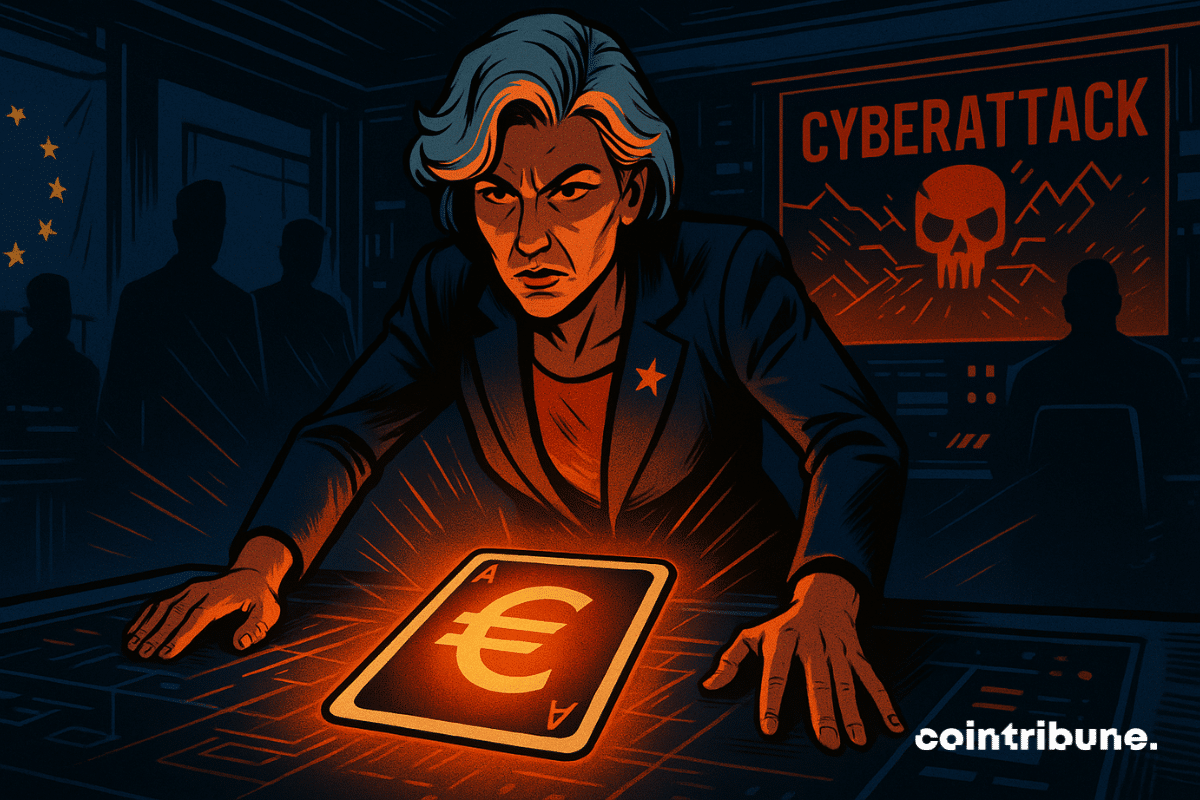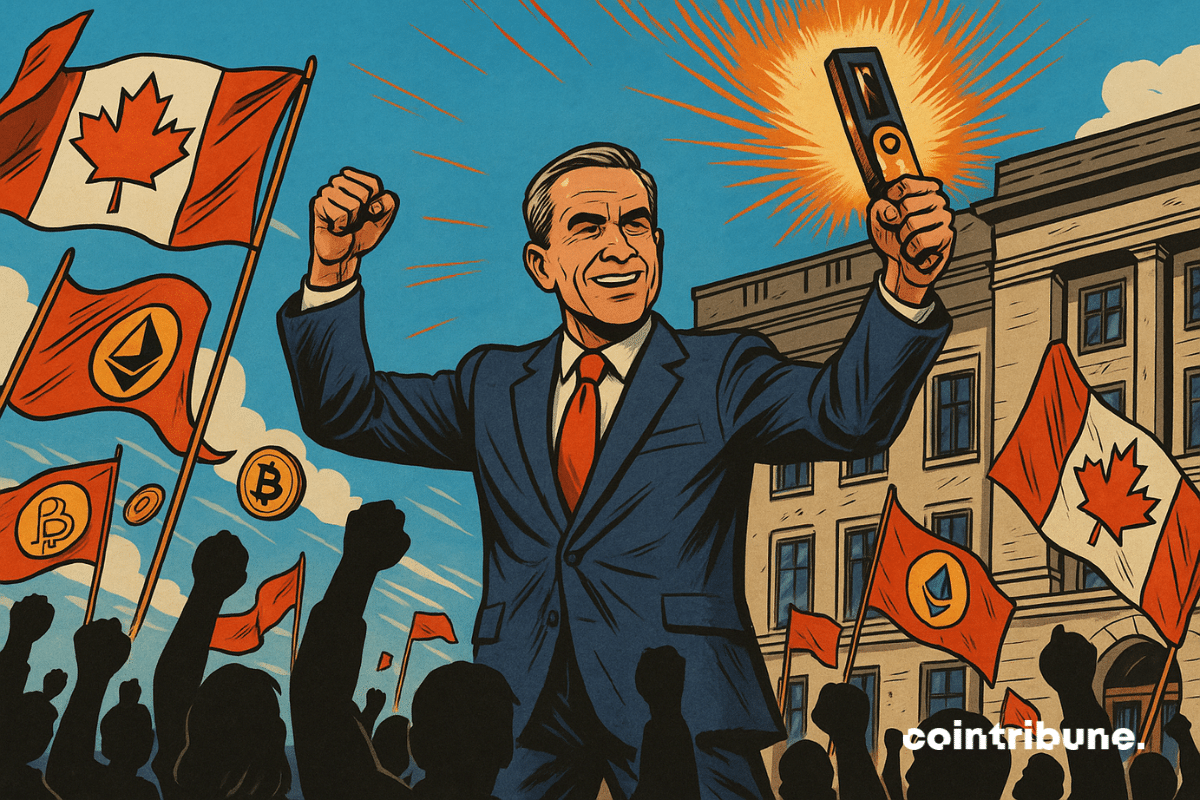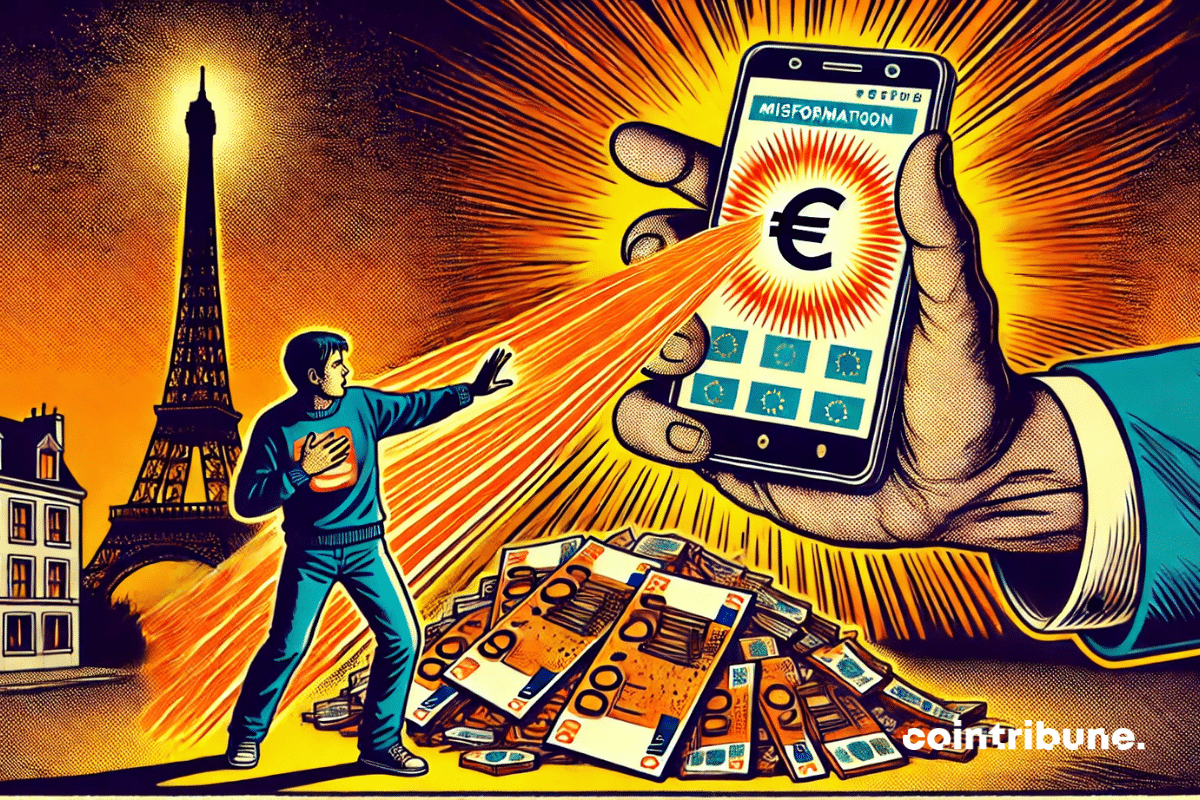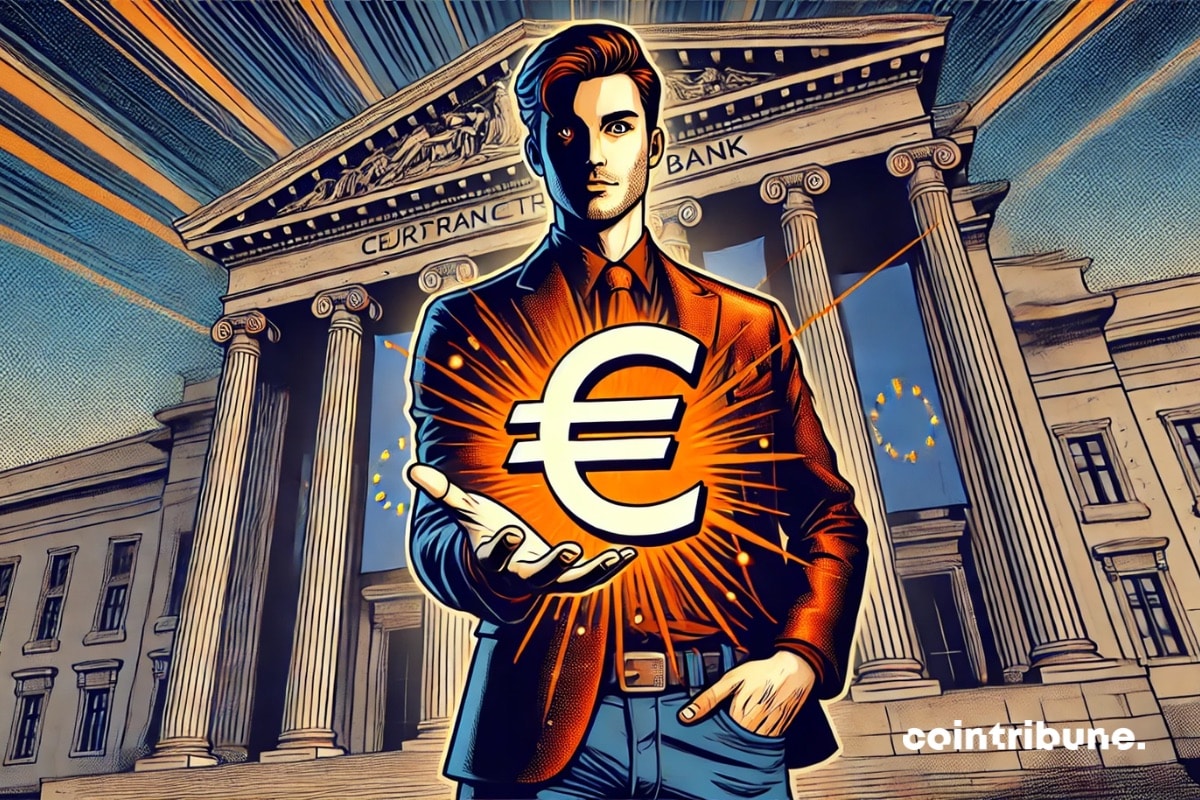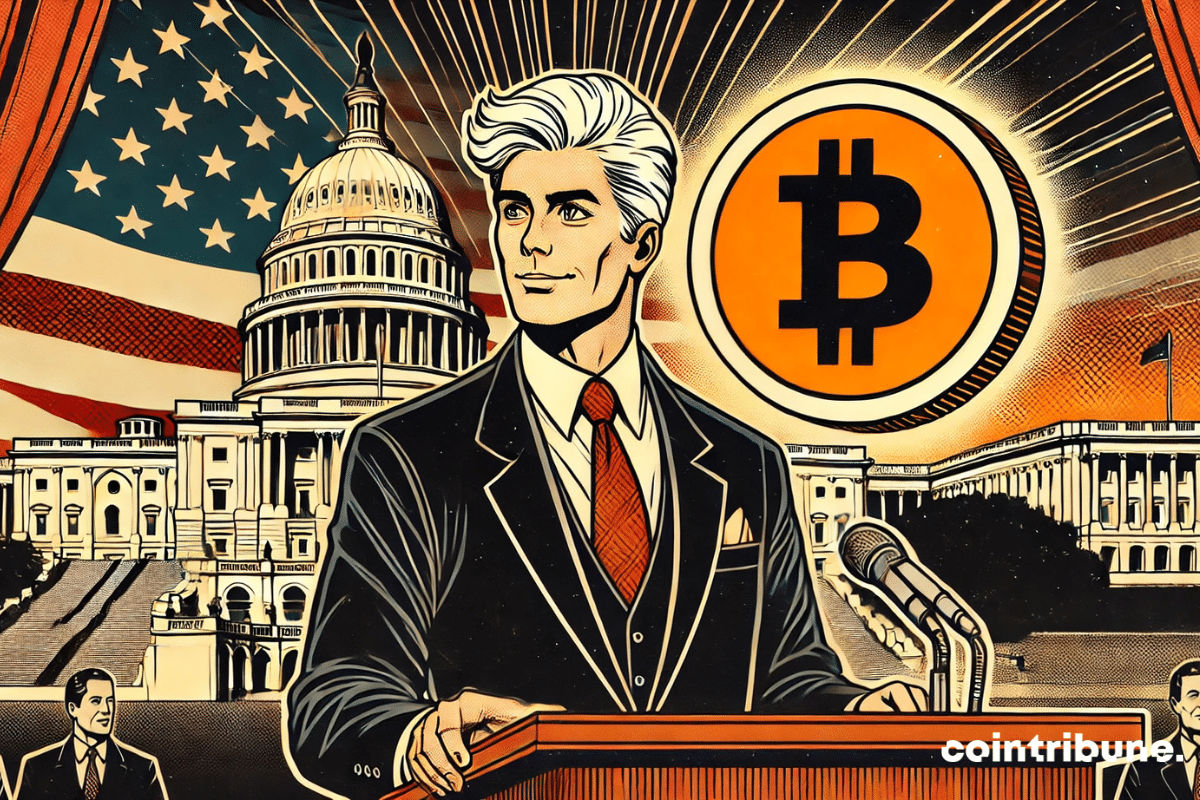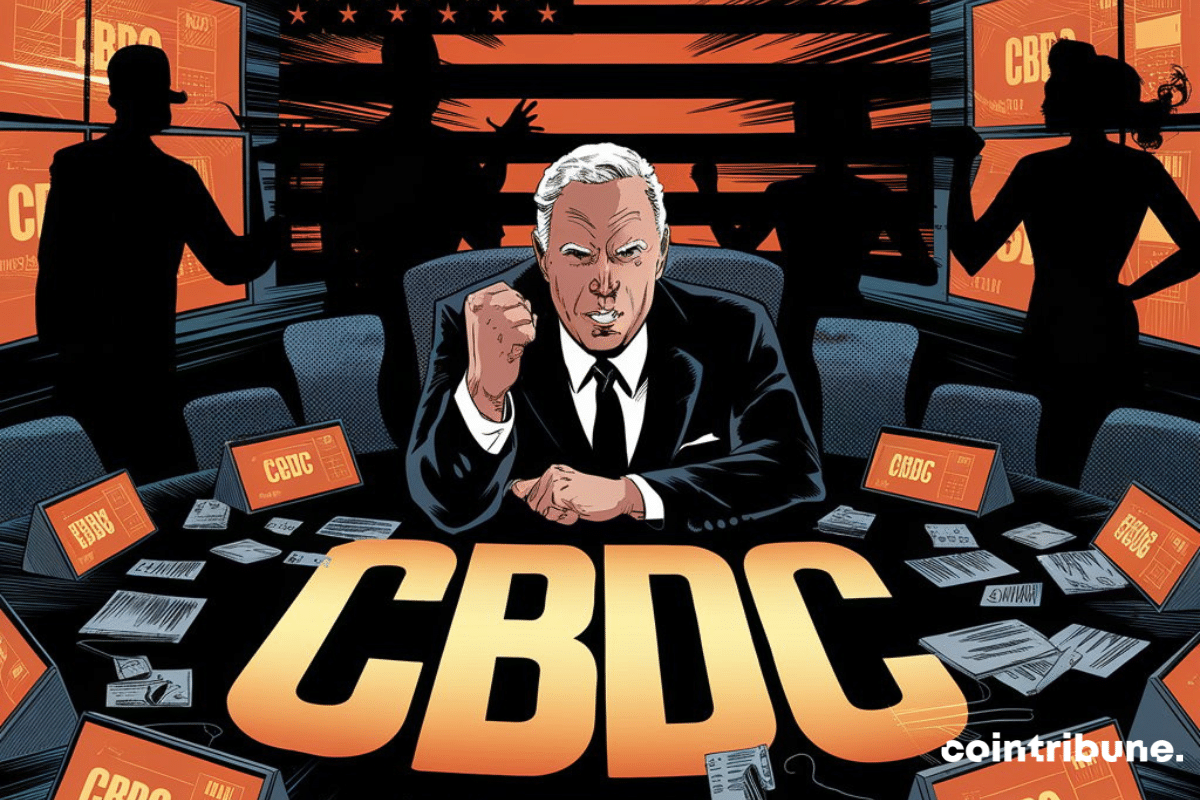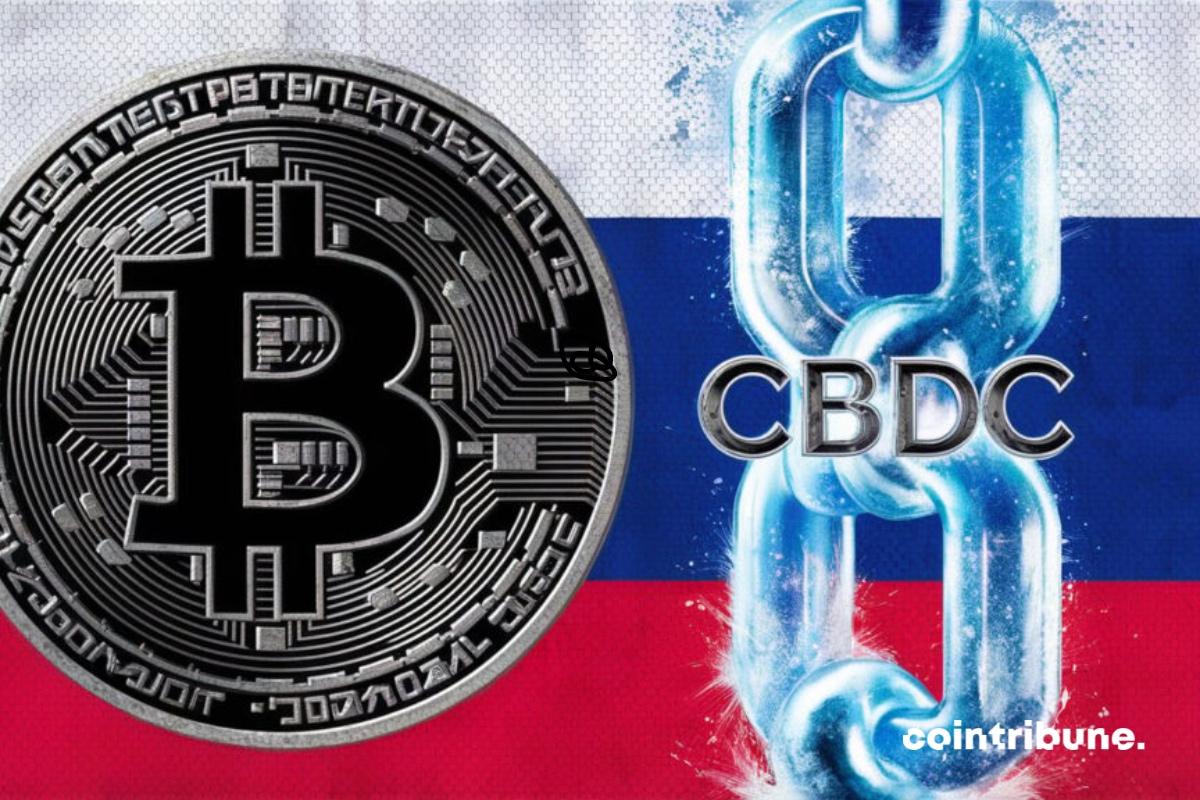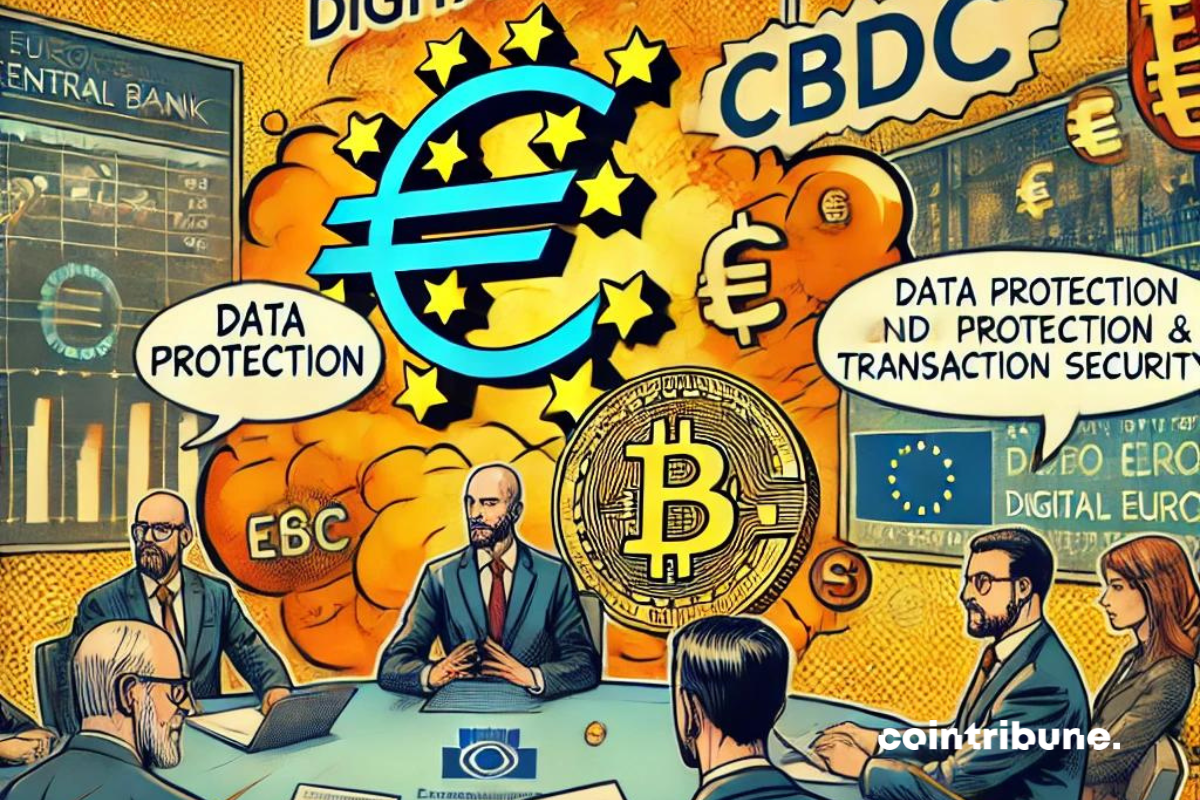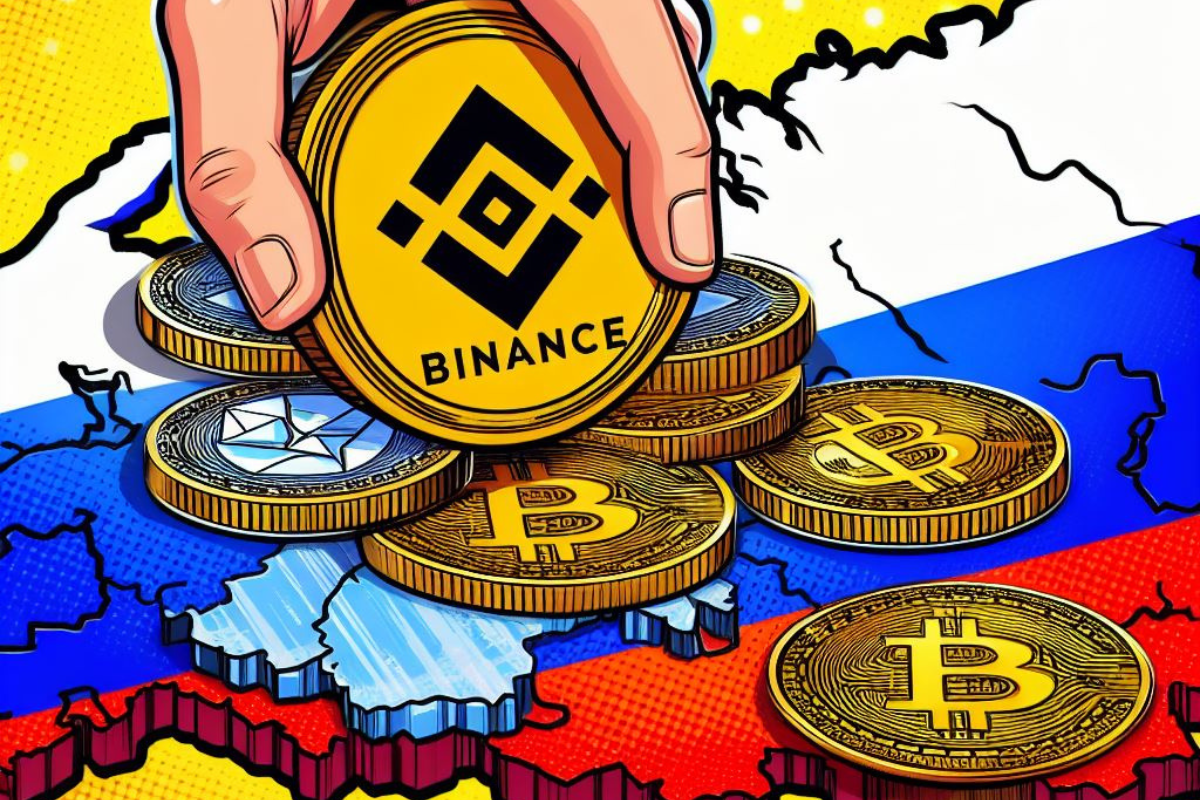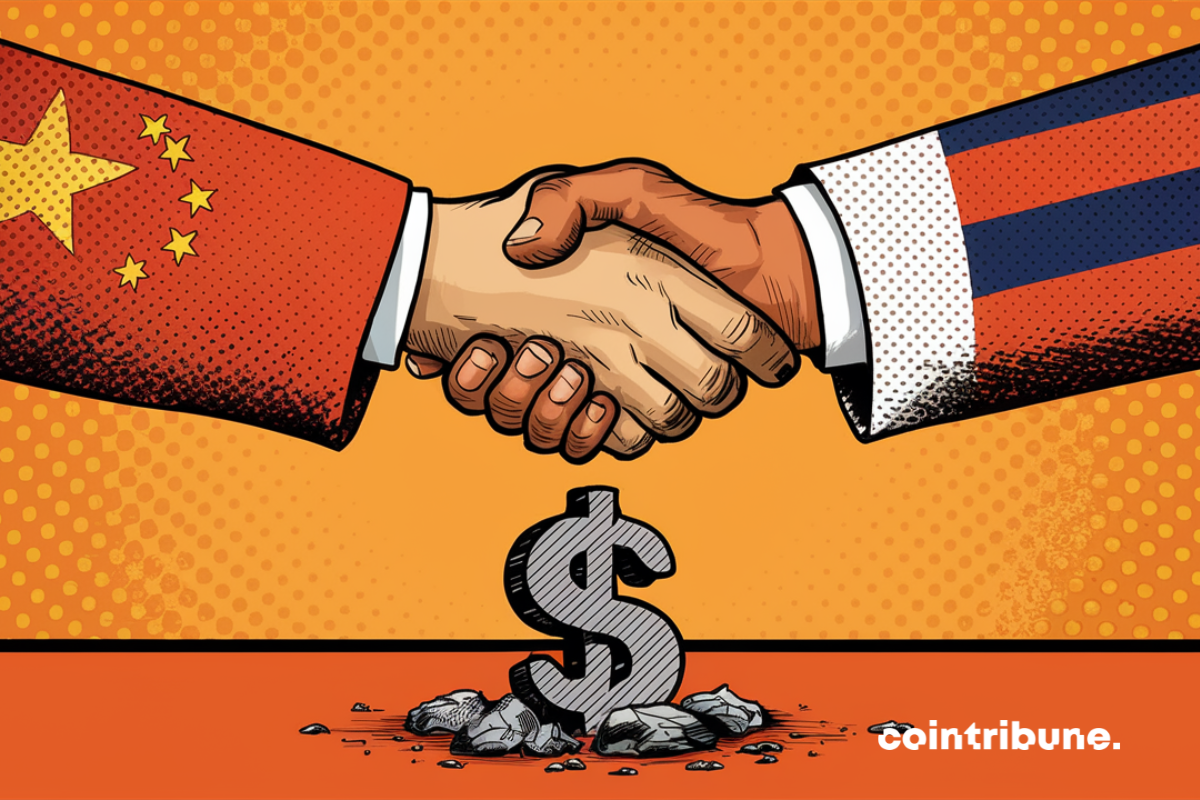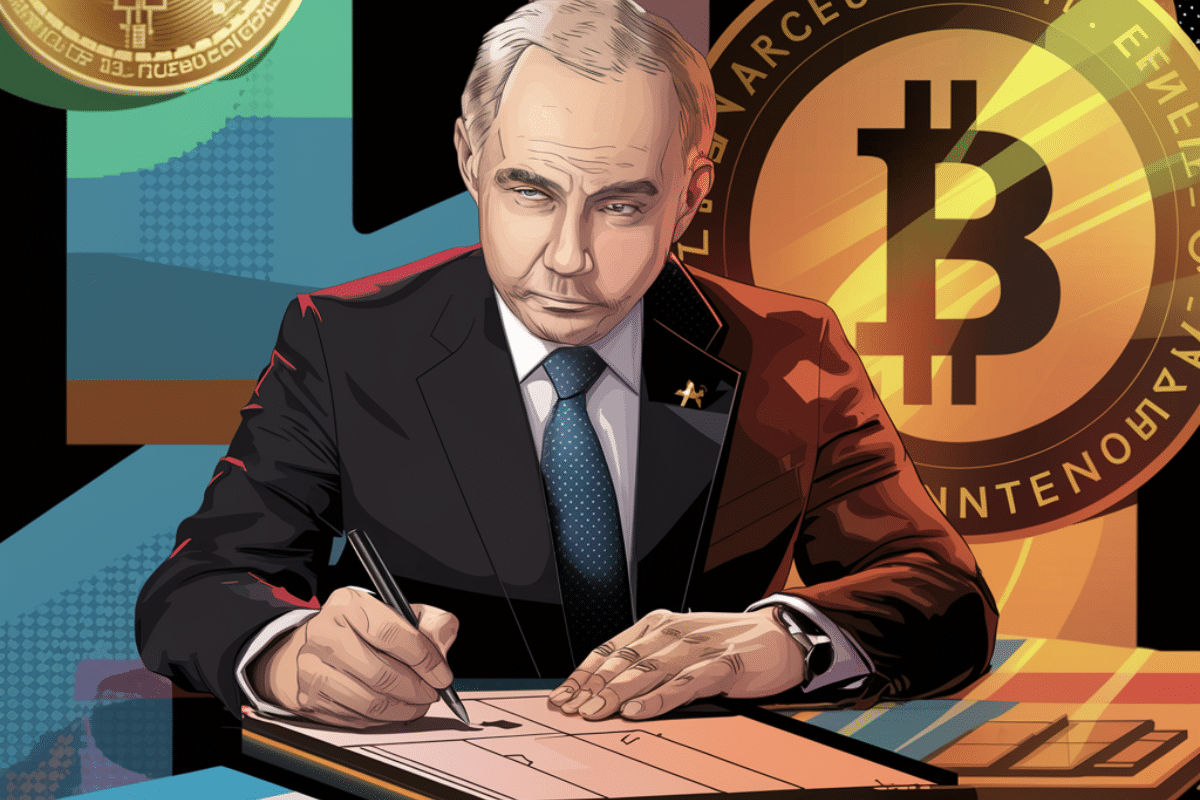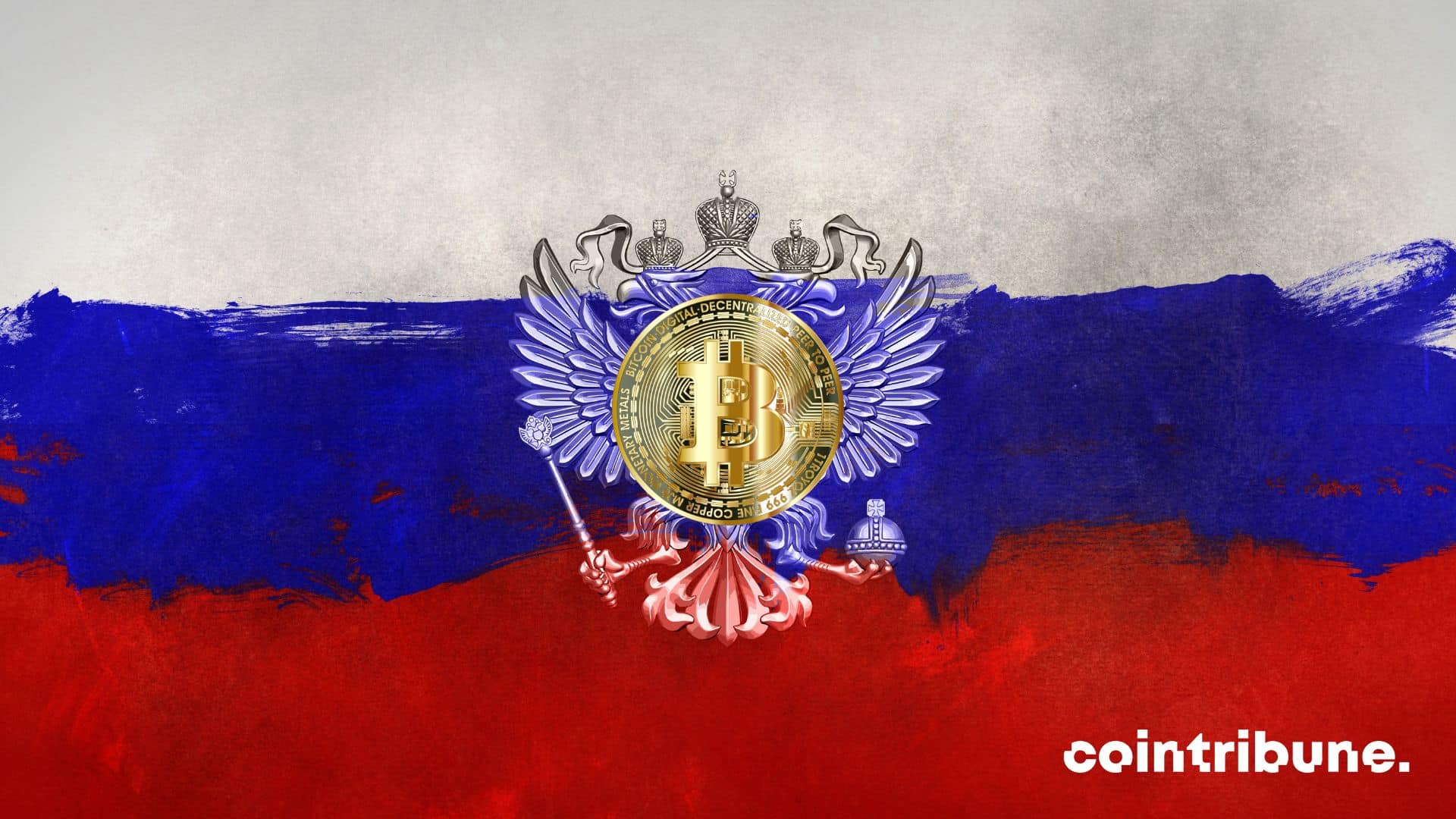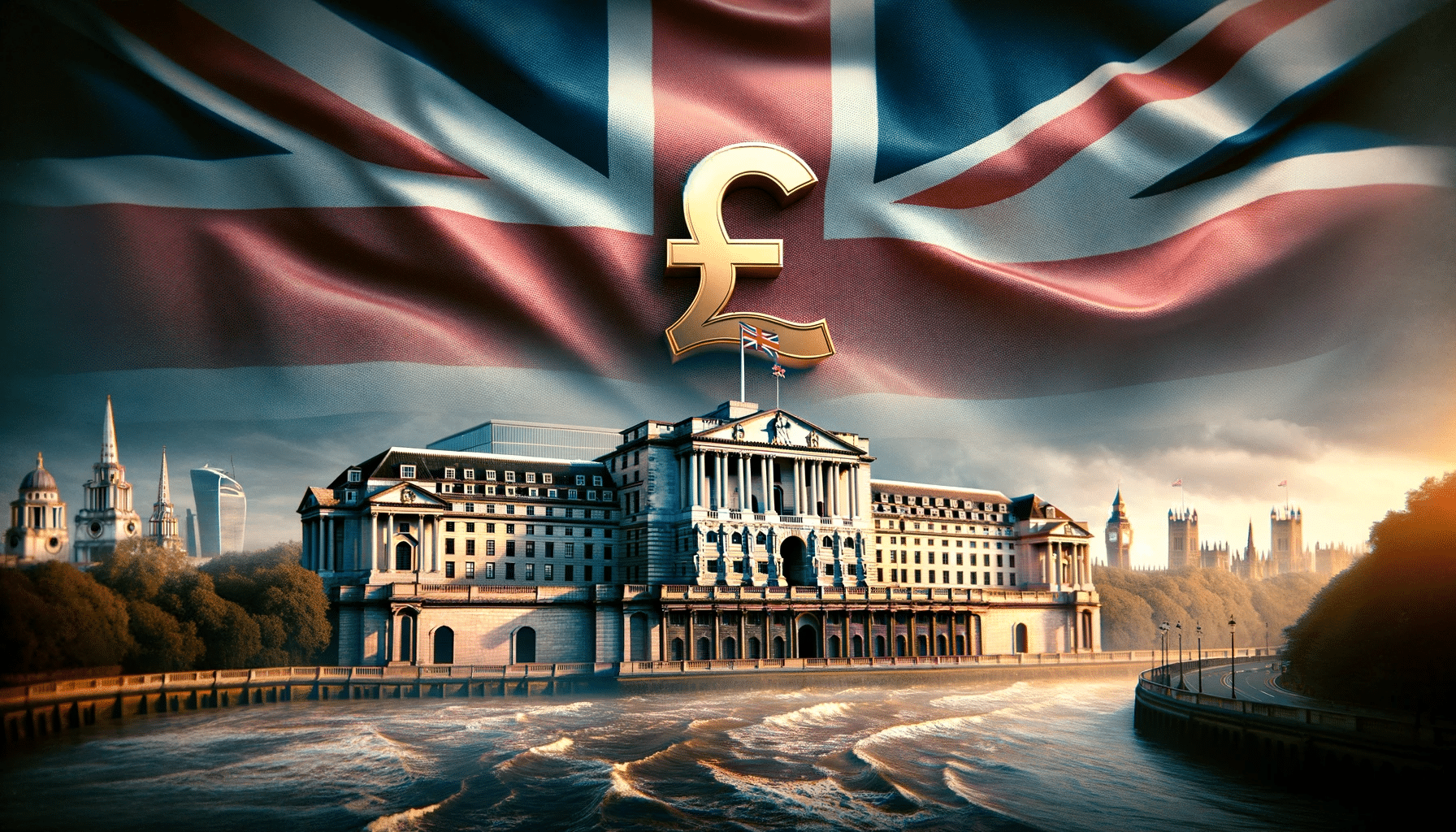The digital euro could change everything: instant payments, financial sovereignty, and an alternative to private cryptos. However, despite ready technology, European legislators block the project out of fear of privacy risks. Which crypto will disappear if the digital euro arrives in 2026?
CBDC
While some are still looking for the "send" button on their crypto wallet, Singapore is about to roll out tokenized bonds in CBDC. Should we expect a subtle revolution?
Trump, crowned president of mental mining, dreams of a bitcoin empire while Beijing prepares its tokens... A crypto-crusade to follow between tweets, stablecoins, and the digital yuan under surveillance.
Christine Lagarde presents the digital euro as a symbol of trust and unity, promising to revolutionize payments in Europe. But this ambitious project also raises passionate debates: financial sovereignty or risk of increased surveillance? Discover the issues and controversies behind this innovation and the hidden role of bitcoin.
While the West debates, Kyrgyzstan launches stablecoin, CBDC, and crypto reserve with the help of a well-known exile: CZ. Digital ambitions or Soviet PR stunt?
While cryptos wreak havoc in pockets and ideas, Francophone Africa plays a digital card... but wouldn’t this revolution have a little hint of the euro?
The European Central Bank intensifies its communication around the digital euro. Piero Cipollone, board member, presented new arguments in favor of the project to the European Parliament. Will the ECB manage to rally users who are still largely detractors?
The European Union is considering anchoring its future digital euro on public blockchains like Ethereum and Solana, according to Financial Times revelations. This choice would mark a major break from centralized approaches, like China, and could redefine the balance of monetary sovereignty in Europe.
Mark Carney, a political and economic victory for Canada, but beware! He may be preparing to bury cryptocurrencies in order to welcome CBDCs with open arms. Bitcoin, get ready to pack your bags.
A viral video on TikTok claims that a law banning cash has been adopted in France. In just a few days, this clip has reignited fears about the end of cash and a fully digitized society. However, this claim is false, as no legal text confirms such a ban. Behind this misleading narrative, a very real topic deserves attention: the digital euro project put forward by the ECB, which aims to complement cash rather than eliminate it.
The digital euro, a future digital currency issued by the European Central Bank, is set to profoundly transform the European monetary landscape. According to the ECB, this CBDC could replace up to 50% of banknotes in circulation and significantly impact bank deposits! Thus marking a strategic turning point for Europe in the face of digital assets.
Central bank digital currencies would eliminate all privacy, but few seem to care. Fortunately, there will always be Bitcoin.
American Congressman Tom Emmer recently reaffirmed his support for stablecoins and his fierce opposition to central bank digital currencies (CBDC), which he sees as a threat to citizens' financial freedom. During a recent address on March 11, 2025, Emmer once again presented his pro-stablecoin bill aimed at promoting these digital assets while curtailing the development of CBDCs in the United States.
As the United States embraces bitcoin, Europe bogs down by continuing to promote the dystopia of the digital euro.
The U.S. Senate approved on January 27 the appointment of Scott Bessent, a hedge fund manager and staunch advocate of cryptocurrencies, to the strategic position of Secretary of the Treasury. This choice, backed by Donald Trump, marks a potential turning point in the economic and crypto policy of the United States.
The ban on central bank digital currencies (CBDCs) in the United States by Donald Trump is disrupting the global dynamics of state-run digital currency projects. This historic decision raises questions about the future of CBDCs, particularly in Europe where the ECB is maintaining its course towards a digital euro.
MiCA in conductor mode: two stablecoins land in Europe, but banks are playing a risky tune.
In a significant stance, the main Indian regulators and institutions consulted by the government advocate for a ban on private cryptocurrencies like Bitcoin and Ether, preferring the central bank digital currency (CBDC).
When 134 countries play sorcerer's apprentices with CBDCs, it is 98% of the global economy that enters a zone of digital turbulence.
The Russian president is closely interested in all alternative payment systems. Including CBDC and Bitcoin.
The international monetary system is in turmoil. The BRICS are exploring various avenues with varying degrees of success.
The European Central Bank (ECB) recently published a crucial report on the development of its central bank digital currency (CBDC). This first milestone report, unveiled on June 24, places particular emphasis on data protection, a sensitive issue at the heart of consumer and industry expert concerns. By promising pseudonymization and independent audits, the ECB aims to reassure and address concerns related to transaction traceability.
Ripple, a well-established company in the digital payments sector, has just revealed strategic partnerships with ten governments for the development of CBDC. This ambitious initiative has raised questions and hopes within the crypto community. The potential implications for the future of global financial transactions are significant, and many observers are eagerly anticipating how these collaborations will influence the market.
"The Bretton Woods system is dead," said Vladimir Putin. What if we replaced it with Bitcoin?
The departure of Binance is boosting the Russian crypto market: +16.4% increase in web traffic and local platforms filling the void left by the giant.
Beijing and Bangkok will de-dollarize their trade by promoting their national currencies. With CBDCs? What about Bitcoin?
The dollar is the Gordian knot of geopolitical tensions. The signals in this direction are now legion. Bitcoin is biding its time.
The Russian President Vladimir Putin signed a historic law on March 11, paving the way for the use of digital financial assets and CBDC for international payments. This measure aims to help Russian companies bypass Western sanctions and facilitate trade with allied countries.
Russia discusses possible use of crypto and CBDC for cross-border payments with friendly countries.
Digital Pound: The BoE and the Treasury have finally published the results of the consultation, providing clear answers.
